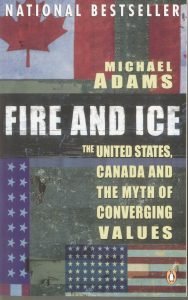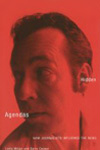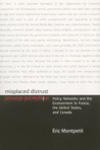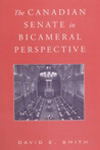Here’s a look back at past winners and the books that made that year’s shortlist. You’ll also find our Jury from each award season.
2003 Winner

Fire and Ice: The United States, Canada and the Myth of Converging Values
Michael Adams
(Penguin Canada)
Can Canada survive and prosper as a distinct society in an era of globalization and technological change, or are we drifting inevitably towards a greater political and philosophical alliance with the United States? Fire and Ice challenges the myth of inevitability and concludes, not only are our preconceptions incorrect, but that values in the two nations are actually diverging. Adams has written an outstanding book that addresses a critical issue underlying many current policy arguments.
Runners – up

Hidden Agendas: How Journalists Influence the News
Lydia Miljan & Barry Cooper
(UBC Press)
Whether it’s television, newspapers, or radio, most Canadians rely heavily on these news sources to not only bring them the news, but to shape their opinions about critical issues and to form images of people and places making the headlines. Skillfully written, Hidden Agendas is an exceptional book on an important subject. The authors carefully examine how the attitudes of journalists on issues such as the economy, social reform, and national unity are reflected in the way the news is reported and how their political ideology differs from that of the general population.

Misplaced Distrust: Policy Networks and the Environment in France, the United States, and Canada
Éric Montpetit
(University of Toronto Press)
Can governments make good public policy? Citizens of industrialized countries largely share a sense that national and international governance is inadequate and believe governments are not only incapable of making the right policy decisions, but the entire network responsible for policy choices is untrustworthy. A first-class work, Misplaced Distrust is a ground-breaking study of the difficulties of policy-making on the subject of agriculture and its impact on the environment in Canada, the United States and France.

The Canadian Senate in Bicameral Perspective
David E. Smith
(University of Toronto Press)
Elegantly written and carefully researched, The Canadian Senate in Bicameral Perspective is the first scholarly study of the Senate in over a quarter century, and the first analysis of the upper house as one chamber of a bicameral legislature. In this in-depth analysis, Smith uses a detailed comparison of upper houses in other countries to examine criticisms and proposed improvements to the Canadian Senate. He sheds light on the Senate’s role as a political institution and argues for a renewed investigation into its future. It is a definitive work on a timely subject and will likely become a standard reference.
2003 Donner JurY
Grant L. Reuber
Chair
Senior Advisor and Director, Sussex Circle; Senior Fellow, C.D. Howe Institute; former Chairman, Canada Deposit Insurance Corporation; former President and Chief Operating Officer and later Deputy Chairman, Bank of Montreal; former Deputy Minister of Finance for Canada; former Vice-President (academic), Provost and later Chancellor of the University of Western Ontario.
Paul Boothe
Professor and Director of the Institute for Public Economics at the University of Alberta; former Deputy Minister for the Province of Saskatchewan.
Claude E. Forget
Consultant and former Minister of Health for the Quebec government; former Chairman of the Commission of Enquiry on Unemployment Insurance.
Elizabeth Parr-Johnston
Consultant and former President and Vice-Chancellor of the University of New Brunswick.
Hon. Donald S. MacDonald
Senior Advisor, Public Policy at Lang Michener; former Minister of National Defence, Finance and Energy, Mines and Resources; former Chairman, Royal Commission on Economic Union (the Macdonald Commission); former Canadian High Commissioner to Great Britain and Northern Ireland.

